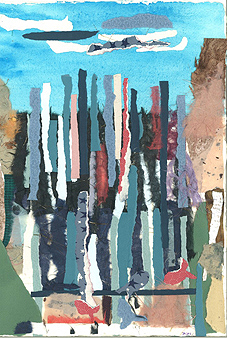|
Globalectics Beyond Postcoloniality
Carole Boyce Davies A delinking that leads to de-colonial epistemic shift and brings to the foreground other epistemologies, other principles of knowledge and understanding and, consequently, other economy, other politics, other ethics. ‘New inter-cultural communication’ should be interpreted as new inter-epistemic communication (as we will see below, is the case of the concept of inter-culturality among Indigenous intellectuals in Ecuador). Furthermore, de-linking presupposes to move toward a geo- and body politics of knowledge that on the one hand denounces the pretended universality of a particular ethnicity (body politics), located in a specific part of the planet (geo-politics), that is, Europe where capitalism accumulated as a consequence of colonialism. De-linking then shall be understood as a de-colonial epistemic shift leading to other-universality, that is, to pluri-versality as a universal project. (452-453) I see the return to the decolonial in these various ways as a valuable intellectual move and itself a critique of the postcolonial. The “coloniality of power” as defined by Peruvian scholar Annibal Quijano created a framework for studying relationally a range of oppressive practices in an alliance of power and control. Thus a decolonial practice is one which challenges coloniality’s regimes of power in several axes. We can thereby account anew for Ngugi’s “decolonizing the mind” which Mignolo does mention (450) as a way of getting to his “grammar of decoloniality” which in my estimation still awaits fuller articulation. For Mignolo though, while “postcoloniality” wants transformation within the terms of the academy, and decoloniality wants a delinking. Thus for him “the time has come, and the process is already in motion, for the re-writing of global history from the perspective and critical consciousness of coloniality and from within geo and body-political knowledge” (485). When critical theory becomes de-colonial critique it has of necessity to be critical border thinking and, by so doing, the de-colonial shift (decolonization of knowledge and of being” (485). This is precisely where Ngugi’s Globalectics intervenes in that it offers this time a new theoretical model that takes us beyond the postcolonial to the global. One can also put “globalectics” again in conversation with Kamau Brathwaite, whose “tidalectics” concept which was nonetheless to the Caribbean still imagines movement and fluidity. Still, “globalectics” imagines a much larger reach and is able thereby to provide “world literatures” with a theoretical handle. It also advances beyond the logic of centricity which resided in Ngugi’s own formation of “moving the center”[xii] and asserts a more engaged international model of thinking and studying literature and culture. Pages: 1 2 3 4 5 6 7 8 [xii] Ngugi wa Thiong’o, Moving the Centre. The Struggle for Cultural Freedoms (Heinemann, 1993). |
Essays in this Forum
Break out of the Prison House of Hierarchy!
by Mukoma Wa Ngugi A Globalectical Imagination by Ngugi wa Thiong'o World Literature and the Postcolonial: Ngugi's Globalectics and Glissant's Poetics by Duncan McEachern Yoon “You Are the Prisoner, the Discoverer, the Founder, the Liberator”: Contextualizing Decolonial Paths of Afro-Hispanic Literature in Latin America, Equatorial Guinea and Spain by Elisa Rizo Globalectics Beyond Postcoloniality by Carole Boyce Davies |
